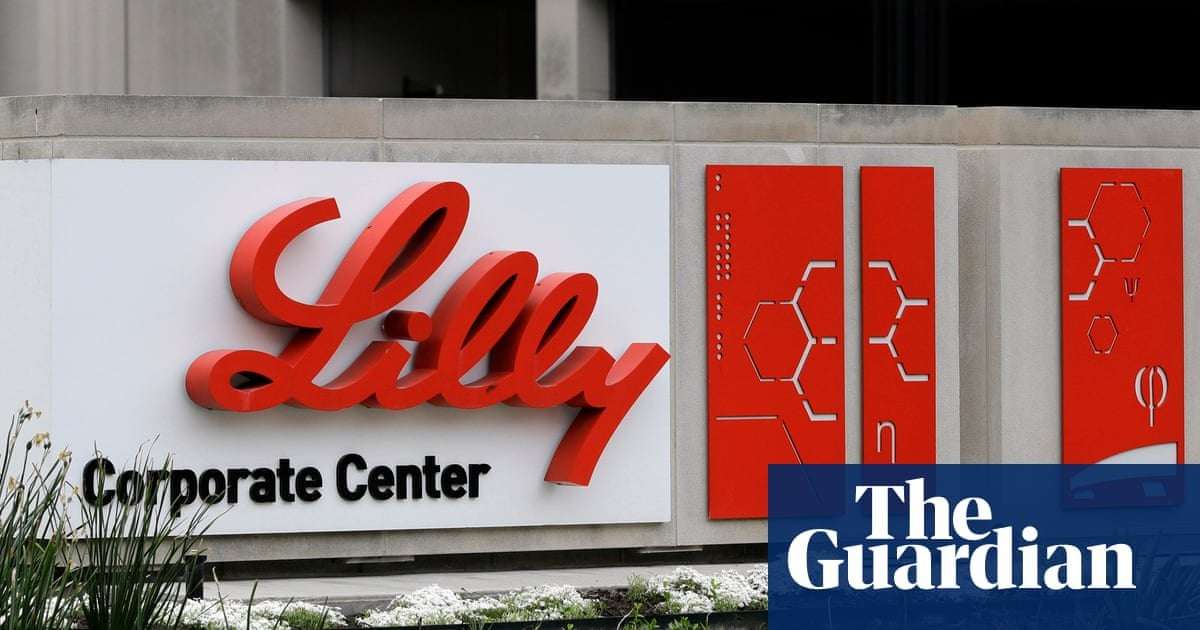A new Alzheimer’s drug slowed cognitive decline by 35%, according to late-stage trial results, raising the prospect of a second effective treatment for the disease.
Donanemab met all goals of the trial and slowed progression of the condition by 35% to 36% compared with a placebo in 1,182 people with early-stage Alzheimer’s, the drugmaker Lilly said.
It comes after trial results published last year showed that lecanemab, made by Eisai and Biogen, reduced the rate of cognitive decline by 27% in patients with early Alzheimer’s.
“This could be the beginning of the end of Alzheimer’s disease,” said Dr Richard Oakley, the associate director of research at the Alzheimer’s Society in the UK. “After 20 years with no new Alzheimer’s drugs, we now have two potential new drugs in just 12 months – and for the first time, drugs that seem to slow the progression of disease.”
Maria Carrillo, the chief science officer of the Alzheimer’s Association in the US, also hailed donanemab’s trial results. “These are the strongest phase 3 data for an Alzheimer’s treatment to date,” she said.
Alzheimer’s is the most common cause of dementia, one of the world’s biggest health threats. The number of people living with dementia globally is forecast to nearly triple to 153 million by 2050, and experts have said it presents a rapidly growing threat to future health and social care systems in every community, country and continent.
In patients on donanemab, 47% showed no signs of the disease progressing after a year, according to a statement issued by Lilly. That compared to 29% on a placebo.
The drug resulted in 40% less decline in the ability to perform activities of daily living, the company said. Patients on donanemab also experienced a 39% lower risk of progressing to the next stage of disease compared to those on a placebo.
However, the company also reported side-effects.
Brain swelling occurred in 24% of those on donanemab, with 6.1% experiencing symptoms, Lilly said. Brain bleeding occurred in 31.4% of the donanemab group and 13.6% of the placebo group.
Lilly also said the incidence of serious brain swelling in the donanemab study was 1.6%, including two deaths attributed to the condition and a third death after an incident of serious brain swelling.
“The treatment effect is modest, as is the case for many first-generation drugs, and there are risks of serious side-effects that need to be fully scrutinised before donenemab can be marketed and used,” said Dr Susan Kohlhaas, the executive director of research and partnerships at Alzheimer’s Research UK.
But she said the results were still “incredibly encouraging” and represented “another hugely significant moment for dementia research”.
“We’re now on the cusp of a first generation of treatments for Alzheimer’s disease, something that many thought impossible only a decade ago,” she added. “People should be really encouraged by this news, which is yet more proof that research can take us ever closer towards a cure.”
Lilly said it planned to apply for approval from the US Food and Drug Administration next month, and with regulators in other countries shortly thereafter.
“At face value, these data look positive, but we need to see the full dataset,” said Dr Liz Coulthard, an associate professor in dementia neurology at the University of Bristol.
“Donanemab seems to help people with early Alzheimer’s retain cognitive function for longer – and this effect looks to be clinically meaningful. Donanemab might help people live well with Alzheimer’s for longer. If approved alongside lecanemab, this potentially brings a choice of treatments for patients.”

twotimeuse on May 4th, 2023 at 03:49 UTC »
My dad was in this trial. He went from a normal functioning adult to not recognizing my mom (his wife of 4 decades) in about two years. The infusions caused periods of intensified confusion and at least one brain bleed. The improvement may be measurable, but this is not anything like a cure.
aedes on May 3rd, 2023 at 21:35 UTC »
Results have yet to be published, or peer-reviewed, so we need to look at their clinical trial registry to start:
https://www.clinicaltrials.gov/ct2/show/NCT04437511
Note that essentially all study outcomes are subjective outcomes. This is important because effective blinding is critically important for subjective outcomes.
The trial methodology has been published elsewhere:
https://n.neurology.org/content/98/18_Supplement/1688
Unfortunately, it is not yet clear how blinding was accomplished, and whether outcome assessment was blinded.
In addition, should these press-release results be confirmed in peer-review and the study results published, you should pay attention to the adverse event rate. From the article we are commenting on:
Essentially, even if these results are "true," a patient receiving this medication is trading a decrease risk of cognitive decline over a 72 week period, for a ~1/5 chance of cerebral edema, and a ~1/5 chance of intracranial hemorrhage.
ActiveAd4980 on May 3rd, 2023 at 18:45 UTC »
Alzheimer's a hell. I can only hope that we can find a cure/treatment, or that I die before it hits me.